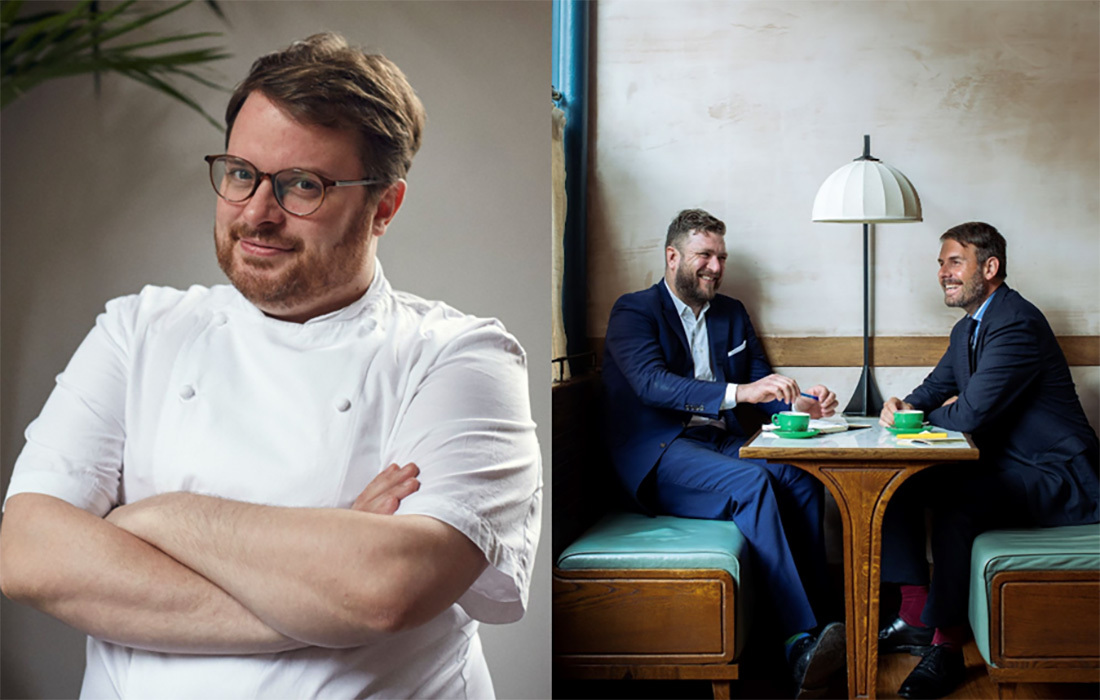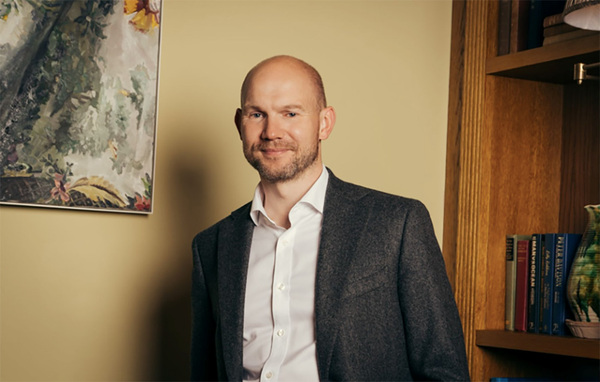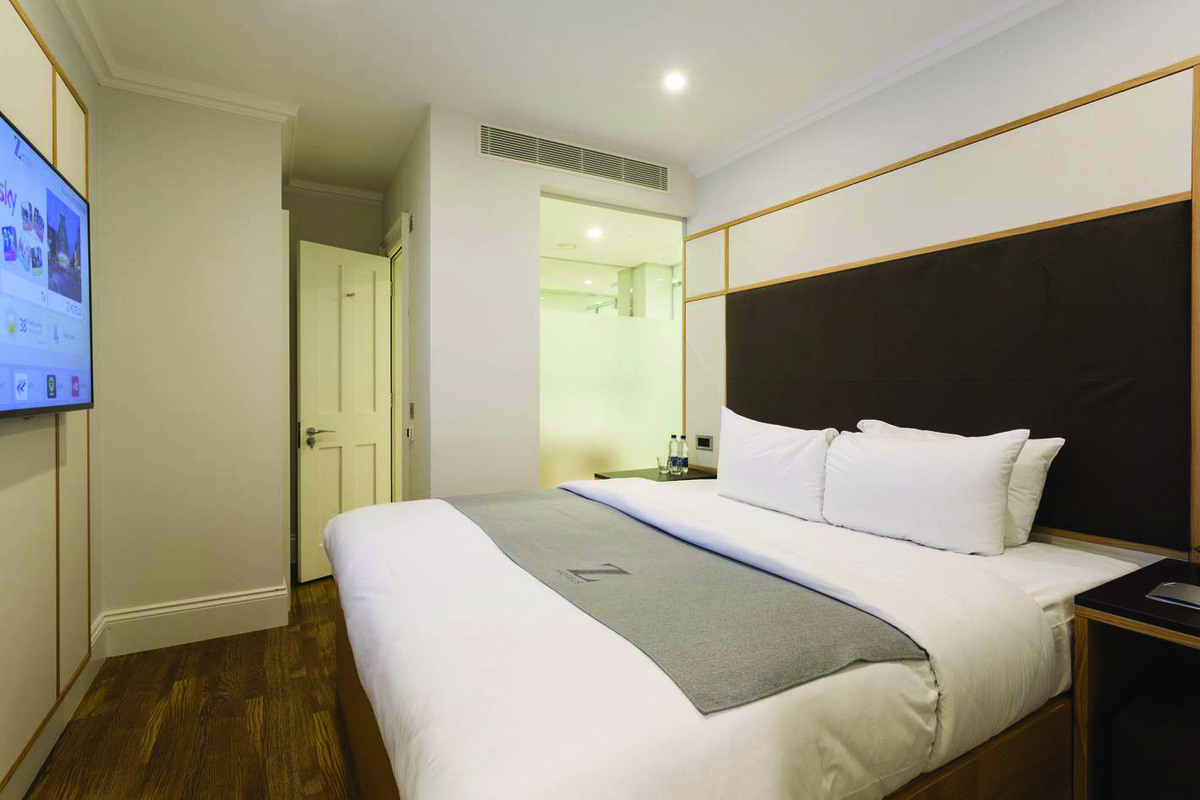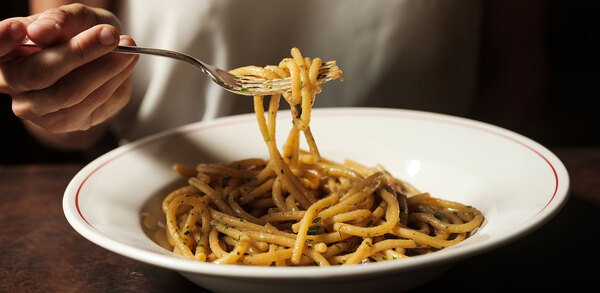Is it worth joining the Sustainable Restaurant Association?
The response to the newly launched Sustainable Restaurant Association has been surprisingly mixed. So does the industry really need it? Rosalind Mullen reports.
Who'd have thought, in this eco-friendly age, that an organisation launched to help restaurateurs operate in a sustainable way would attract such cynicism, but let's face it: the Sustainable Restaurant Association (SRA) has not received all-out support.
Founded by restaurateur Mark Sainsbury and Good Business consultant Giles Gibbons, and funded mainly by charitable organisations and the lottery, the not-for-profit association sets out to support any keen operator - from high-street chain to fine-dining restaurant - in their bid to tackle the financial, social and environmental impact of their business.
Since the association was launched in February, 200 restaurants have signed up out of the 30,000 in this country. However, while these include leading names, such as Le Manoir aux Quat'Saisons, Tom Aikens, Benares and Geales, there are a number of high-profile green-aware restaurants such as Arbutus, Acorn House and the River Cottage that are conspicuously absent.
Some of these abstainers claim the SRA can't do anything to improve their business. They reckon they're already well on their way to sustainability and are asking what's in it for them. Others are miffed that it's so inclusive almost anyone can join - and the rest are still thinking about it. Even the Restaurant Association has yet to decide how it can work with its green sister, although they are in talks.
Shoreditch Trust, which operates the famously environmentally-conscious Waterhouse, Acorn House and Mudchute restaurants in London, welcomed the SRA, but said it would not be joining. "The SRA scheme appears to have been designed to be as inclusive as possible, which may be useful for restaurants starting on a path of gradual improvement, but for us this means less rigour than the standards we apply to ourselves," says Jamie Eagles, head of social enterprise and sustainable remit.
This is a fair observation. To sign up for a "We're at the table" window sticker plus a listing on the SRA website directory, restaurants have merely to fulfil three sustainable criteria out of 100 (see panel) and pay an annual fee, which starts at £240 a year for businesses with a turnover of less than £500,000. Audits to achieve gold, silver or bronze accreditation are optional and cost a further £700.
So what is the SRA trying to achieve? Well, it's important to note that whether or not members opt for an audit, they do have to commit to adding a further three criteria every year, thereby creeping inexorably towards sustainability.
"Every restaurant should become sustainable. It's not where you are now, it's where you're moving to. We have made the bar low and challenge them to change," explains chief executive Giles Gibbons.
This touches on the argument that it's not so much whether the SRA should exist, but whether it goes far enough.
Restaurant critic Jay Rayner's recent blog in the Guardian argues that the joining criteria are so easy it makes a mockery of restaurants that seriously pursue sustainability. He points out that fast-food giants such as Pizza Hut and KFC could easily tick three boxes such as supporting a charity, offering tap water and providing doggy bags.
But Gibbons reckons Rayner has missed the point. "Jay Rayner thought the three criteria were too easy," he says. "He thought you didn't have to make a change. But you do have to add three additional criteria every year. We are creating momentum."
"I'm not 100% sure we've got the criteria right. But we start with a strong principle that we mustn't be an elitist club. If we stick with just restaurants that provide expensive meals we won't touch the sides in changing society."
And in any case, is it such a bad thing to bring fast-food giants even a short way towards sustainability? The thinking behind all this is that en masse sustainable restaurants can slowly change the food chain and influence consumers, who in turn influence decision-makers on issues such as climate change, animal welfare, food waste and so on.
Free range
This is not as over-ambitious as it sounds. Henry Dimbleby, co-founder of healthy fast- food chain Leon, has pointed out that McDonald's decision to use free-range eggs in 1997 has driven British farmers into producing 150 million free-range eggs a year, up from three million.
Certainly, the public are on board. According to a survey carried out by the SRA, almost 70% of diners in the UK think restaurants aren't doing enough to tackle social and environmental issues, with a similar number saying they are more likely to go to a restaurant that was sustainable. This is supported by feedback from top chefs, independent restaurants and restaurant chains.
But the SRA is not just an eco love-in. Gibbons explains that sustainable restaurants will improve their bottom line if they adopt cost-cutting initiatives such as the ethical sourcing of ingredients, conservation of water and energy, use of minimal packaging and implementation of a recycling policy. They can also improve staff retention by dealing with tips fairly, offering a mentoring programme or integrating them into the community through charity events.
"There are many ways it can help your business - and it's crucial that it does," says Gibbons. "The whole industry is moving forward [to sustainability] and diners want it."
Gibbons should know. His day job is running Good Business, a corporate responsibility consultancy, that has charted improvements in the performance of major corporations in other industries that have embraced sustainability.
"It's about how you run and manage the business," he says. "The UK restaurant industry is fragmented, with 30,000 mostly small- to medium-sized businesses. They have no time to make these discoveries and changes, but they're not difficult or expensive. The SRA can help them to make easy wins."
Businesses are joining at different stages of evolution. One of the more surprising members is the growing hamburger chain Byron, where the provenance of meat is important. Another is the Old Orleans chain, which serves affordable fare such as Cajun-style chicken wings and enchiladas, but is "committed and wanting to do more".
Certainly there don't seem to be many downsides to joining. The fear that big corporations might sign up for the badge to impress punters, while not engaging with the issues, is surely realistic. But Gibbons stresses that members will be dropped if they don't commit to moving forward every year. "People who are doing it solely for marketing purposes might pull out," he concedes. "This is helping them towards sustainability; it's not a marketing thing."
What's clear is that this is not a high-handed, exclusive club. If anything, the SRA is a movement of like-minded restaurateurs that the founders believe will gather momentum.
"If it becomes a DNA for how the business works you won't be able to separate it," Gibbons says. "Intellectually, no one disagrees with the SRA. Once we hit the tipping point, people will say they need to be a member. And I think we will get to that point. It may take longer than I thought, but we feel positive that it will evolve."
Who's doing what… A snapshot of two SRA member
Executive chef Neil Forbes, from Atrium, Blue and Café St Honore in Edinburgh, reckons that membership of the SRA will push the company that bit further. "We already use local producers and artisans, but the SRA pushes you to do more, so joining is a natural step for us," he says.
The SRA has already helped Forbes in sourcing sustainable halibut, farmed on the Isle of Ghiga. Otherwise, he sources meat and vegetables from local producers and farms, and often shops in the city's farmer's market, where he reckons he can fill a hessian bag full of vegetables for a tenner. (He shudders at the amount of packaging in a supermarket.)
Areas where the company hopes to improve include recycling, waste-disposal and working with the community through, for instance, school visits. New initiatives include taking his brigade on farm visits so they appreciate the seasonality of vegetables and carry this through when they become the next generation of head chefs.
"I'm driven by seasons and what's on the doorstep - what fish is on the boats, what vegetables are in the market, what meat the butcher has hung, what cheese is perfect. We write the menu as dictated by the grower. We keep finding substitutes for what is grown elsewhere. We keep finding food heroes."
In terms of business, Forbes says simply writing the farm's name on the menu brings kudos. "Some customers don't care about sustainability - they just come out to eat. But there is a large proportion who shop well at home and who do care," he says.
All this has changed his style of cooking. For instance, he doesn't use ingredients such as foie gras any more simply because he can't buy it locally. In fact, he says he is now thinking about not using vanilla, which doesn't grow in the UK.
"There's a lot more legwork involved. I'm on the phone constantly. I just picked up 12 sensational ducks from a producer down the road, with buttery meat and fat skin that will crisp up beautifully. But it takes work to get the price right. Once you do, it works. It needn't be expensive if you buy in season and speak daily to the local suppliers." he says.
Why does he bother? "We do it because of the environment," Forbes says. "The ice-caps are melting."
Carluccio's managing director, Simon Kossoff, says the 49-strong chain has signed up because customers and staff members are asking for it. "We feel that although it currently doesn't have a huge effect on where staff and customers will choose to eat and work now, we believe it may do so in the future," he says. "The great thing about the SRA is that it is about taking a journey and making small steps toward sustainability."
The company is already ahead of many chains in terms of employment, packaging and staff, but Kossoff adds: "We are making real efforts to improve in areas such as sustainable sourcing and energy management where we have some work to do. We are focusing particularly on ensuring we source sustainable fish."
As for the downsides, Kossoff reckons there aren't many. "There is some tension between being sustainable and profitability, but although there are cost issues there are also cost benefits," he explains.
Are you on the sustainable trail
Here is a selection of criteria within 14 specific areas that restaurants are asked to commit to. To join they need only fulfil three of the criteria, but to remain members they need to commit to achieving three more every year:
â- Source at least 20% more fresh produce from a producer within 50 miles of your restaurant (100 miles for London)
â- Source at least 20% more (by value) of your fresh produce from an ecologically certified producer (eg, Soil Association, LEAF Marque, Rainforest Alliance)
â- Deal directly with at least three farmers or producers of fresh produce
â-Â Only source fish from a Marine Stewardship Council (MSC) certified supplier
â- Insist that more than 75% of meat and vegetable suppliers take back and reuse or recycle all packaging
â- Group with local restaurants to aggregate your food orders and accept deliveries together
â- Carry out an energy audit and commit to reducing energy-use by 10%
â- Switch to a renewable energy or green energy tariff
â- Fit two electricity or gas submeters to monitor kitchen energy use
â- Install a water meter and maintain weekly measurements
â- Replace your bottled mineral water with a filtered tap water system (or only serve tap water)
â- Conduct a waste audit and commit to sending no more than 20% waste (by weight) to landfill
â- Recycle paper, plastic, cans and glass
â- Design the menu to cater for food allergies and offer vegetarian/vegan alternatives
â- Start an apprenticeship scheme
â- Choose a local charity or community initiative to support on an annual basis
â- Sign up to the Fair Tips Charter and display your service charge policy
â- Offer extra staff benefits such as a cycle-to-work scheme, childcare scheme, staff profit-share or mentoring
â- Start a customer newsletter to communicate your sustainable actions
A full list can be found at: www.thesra.org















